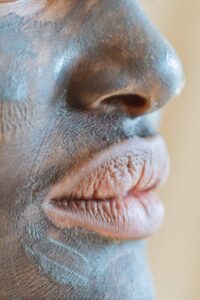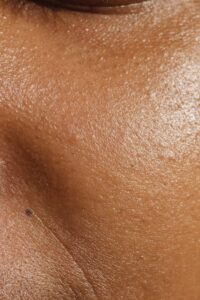Introduction
Having smooth, radiant skin is a universal desire. Our skin, the body’s largest organ, can sometimes fall victim to various factors that negatively impact its texture. Factors like aging, exposure to the sun, poor skincare, and even lifestyle choices can all contribute to skin texture issues. However, the good news is that with some dedicated care and a few lifestyle adjustments, you can significantly improve your skin texture. In this article, we will explore seven effective tips to help you achieve smoother, healthier skin.

Tips to Improve Skin Texture
1. Maintain a Consistent Skincare Routine
One of the fundamental steps in achieving better skin texture is to establish a consistent skincare routine. This routine should include cleansing, exfoliating, moisturizing, and protecting your skin from the sun’s harmful UV rays. Here’s a breakdown of the steps:
– Cleansing: Choose a gentle, pH-balanced cleanser that suits your skin type. Cleansing helps remove dirt, makeup, and excess oils that can clog your pores and hinder your skin’s natural rejuvenation process.
– Exfoliating: Regular exfoliation helps remove dead skin cells, revealing fresh, healthy skin underneath. You can use chemical exfoliants like alpha hydroxy acids (AHAs) or beta hydroxy acids (BHAs) or physical exfoliants like a gentle scrub. Be cautious not to over-exfoliate, as it can lead to irritation.
– Moisturizing: Applying a suitable moisturizer helps maintain your skin’s hydration levels and keeps it soft and supple. Opt for a product that matches your skin type, whether it’s oily, dry, or combination.
– Sun Protection: Always use a broad-spectrum sunscreen with at least SPF 30 to shield your skin from UV damage, which can lead to premature aging and texture issues. UV exposure can break down collagen and elastin fibers, causing fine lines, wrinkles, and rough skin.
2. Stay Hydrated
Hydration is crucial for skin health and texture improvement. Drinking an adequate amount of water throughout the day helps keep your skin hydrated from the inside out. When your skin is well-hydrated, it appears plump, smooth, and vibrant. Aim for at least 8-10 glasses of water per day and consider incorporating hydrating foods like water-rich fruits and vegetables into your diet.
3. Eat a Balanced Diet
Your skin’s health is directly influenced by the nutrients you consume. To improve skin texture, focus on a diet rich in vitamins, minerals, and antioxidants. Key nutrients for healthy skin include:
– Vitamin C: Found in citrus fruits, strawberries, and bell peppers, vitamin C is essential for collagen production and skin repair.
– Vitamin E: Nuts, seeds, and green leafy vegetables are excellent sources of vitamin E, which helps protect your skin from free radical damage.
– Omega-3 Fatty Acids: These healthy fats, found in fatty fish, flaxseeds, and walnuts, can help maintain your skin’s lipid barrier and reduce inflammation.
– Antioxidants: Antioxidant-rich foods, such as berries, green tea, and dark chocolate, help combat oxidative stress, which can lead to skin texture issues.
4. Get Adequate Sleep
Quality sleep is a vital component of skin health. During deep sleep, your body repairs and regenerates cells, including those responsible for skin structure. Aim for 7-9 hours of quality sleep each night to allow your skin to recover and renew, leading to an improvement in texture over time.
5. Manage Stress
Chronic stress can wreak havoc on your skin texture. Stress triggers the release of hormones like cortisol, which can lead to increased oil production and inflammation. These factors can contribute to acne, redness, and uneven texture. To manage stress, consider practices like meditation, yoga, deep breathing exercises, and regular physical activity.

6. Quit Smoking and Limit Alcohol Consumption
Smoking and excessive alcohol consumption are known to negatively impact skin texture. Smoking constricts blood vessels, reducing blood flow to the skin and depleting it of essential nutrients. It also damages collagen and elastin fibers, leading to premature aging. Excessive alcohol consumption dehydrates the body, making the skin look dull and tired. Quitting smoking and moderating your alcohol intake can lead to a significant improvement in your skin’s texture and overall appearance.
7. Consult a Dermatologist
If you’ve tried the above tips and still struggle with skin texture issues, it may be time to consult a dermatologist. Dermatologists can assess your skin’s condition, recommend appropriate treatments, and prescribe skincare products that target your specific concerns. Procedures like chemical peels, microdermabrasion, and laser therapy can also be effective in improving skin texture under professional guidance.
Conclusion
Achieving smoother, healthier skin texture requires commitment and a combination of various strategies. By maintaining a consistent skincare routine, staying hydrated, eating a balanced diet, getting enough sleep, managing stress, and making healthy lifestyle choices, you can make significant strides toward achieving your skincare goals.

Remember that everyone’s skin is unique, so it may take some time and experimentation to find the routine and products that work best for you. If necessary, don’t hesitate to seek professional advice from a dermatologist to tailor a plan that suits your individual needs. With patience and dedication, you can enjoy the benefits of improved skin texture and a radiant complexion.
Do Follow:https://pin.it/5WsBVN8

